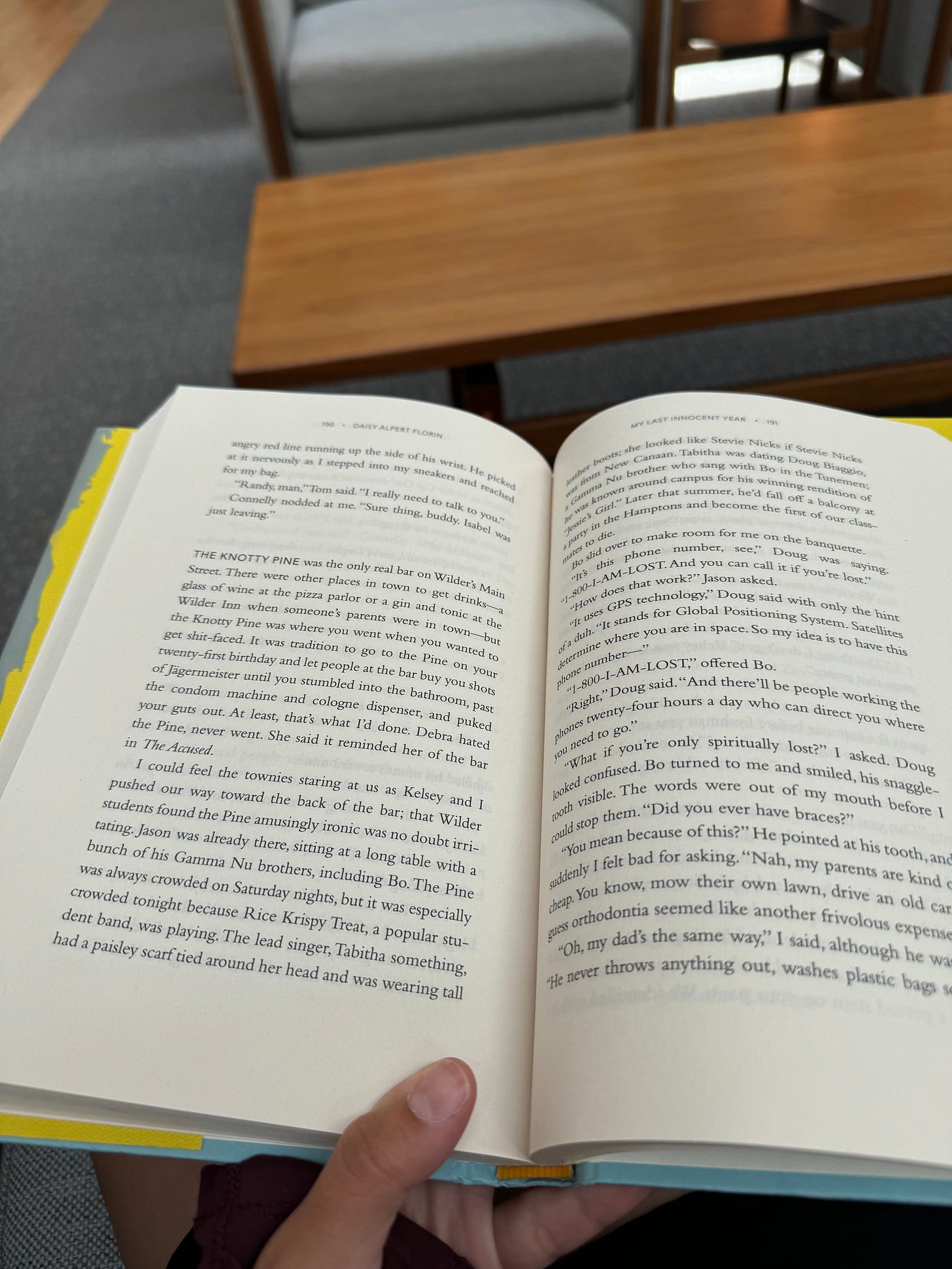Penny Post #54: Last Lines
As if the end will foreshadow the beginning.
I have a habit of reading the last sentence of each book I’ve yet to start. I buy a book or borrow it from the library or receive a gift from a friend and before I read the first line of the book, I read the last.
It is a strange habit, one I’ve completely forgotten the origin of, yet the habit is stuck to me like glue.
Although you would think otherwise, the last line seldom spoils the ending. It is often some vague statement about humanity or endings and in the very rare case is a cliff hanger for a presumed sequel. I never read anything but the last line, so even if I’m confused or uncertain or seven thousand questions arise, I read the last line and then flip through to the beginning, where I’ll officially start. I won’t let my eyes wander anywhere above the last line after wandering too many times into the last paragraph or the last page or the last chapter and suddenly, spoilers are too rich to ignore and starting the book from the beginning feels pointless.
The last line is a road map, a north star, a directional signpost promising an end to the story. I allow it to guide me as I piece together the puzzle of what I’m reading, and, in most cases, I also use it as a tool to judge the author’s talent. If an author knows how to end their story, I trust them to begin it. If the last line is no good, my fealty to read the rest of them wanes.
This criticism begins in my own writing. Of all the lines I write, I believe the last is most important. It is your final effort to stick in the minds of the reader, the last thought you’ll offer them, the last chance to make your mark. I like full circle endings, when the last line is derived from the first, and I like endings that echo in your mind with meaning. I try to do this in my work. It is often the hardest part of what I do.
If your piece is unfinished, the last line will tell you.
If your piece is irrelevant, the last line will tell you.
If your piece is perfect, the last line will tell you.
In sixth grade I wrote a short story as an english assignment. All of the lines before the last line came to me easily, slipping into my consciousness as if gently plopped down into my brain. All but the last line. I didn’t know how to end my story. I went back to the beginning and read and re-read it until I moved my eyes from the screen, allowed all noise to quiet, and opened the spiritual passage by which ideas entered my head.
Suddenly I had it.
It was one word, signifying both my character’s conclusion and my own.
“Goodbye.”
Not only did the word signify the theme of the story—of foregone conclusions, of closure, of endings—yet it also slipped past my lips at the same time it did my character’s. She got to say it, so I did, too.
Saying goodbye is both a privilege and a burden. I’ve said goodbye too soon, I haven’t said it at all, and I find myself wanting to know the last line in my life so I can understand—though I’m nowhere near the beginning—how it all unfolds. I want someone to tell me my story, so I don’t have to struggle through writing it, draft after draft, shitty revision after shitty revision. I want to know my last line so I can know my next one.
This is the thing.
We don’t get to know our last lines. We can write one down, erase it, write another, tweak it, rewrite it, and then crumple it up and miss the trash can. What’s worse, we don’t even get to know our first lines. By the time our consciousness wakes up, we are maybe at line two-hundred and sixty-seven and by the time our memory stores things away, we are maybe at line six-thousand seven hundred and thirty two. The more lines we accumulate, the less we remember. And if you’re like me, where amnesia descends at an alarming frequency, you seldom remember the line before the one you’re currently writing and you helplessly guess at the next before you, inevitably, write, erase, write, tweak, rewrite, and crumple.
This is life. I guess?
I’m only at line twenty-three thousand three hundred and seventeen (I counted).
The work I do in my writing—with the privilege of reading and saving every line I’ve written in a story (thank you to the invisible Cloud that saves all my work)—is not available to me in life. There are no full-circle endings, not any that you can cultivate, anyway. There are no tight, one-word summaries plucked from the spiritual passage that fit into a perfect, righteous conclusion. There is no reading your last line. A terrestrial impossibility.
All you can do is write (or read) one line. And then another. And another. And hope, eventually, when you reach your last line, you’re ready to say “Goodbye.”
Until next time,
Kiera



I really liked this post. I sometimes read the last lines too but then I find myself tempted to keep looking up the page to find out more